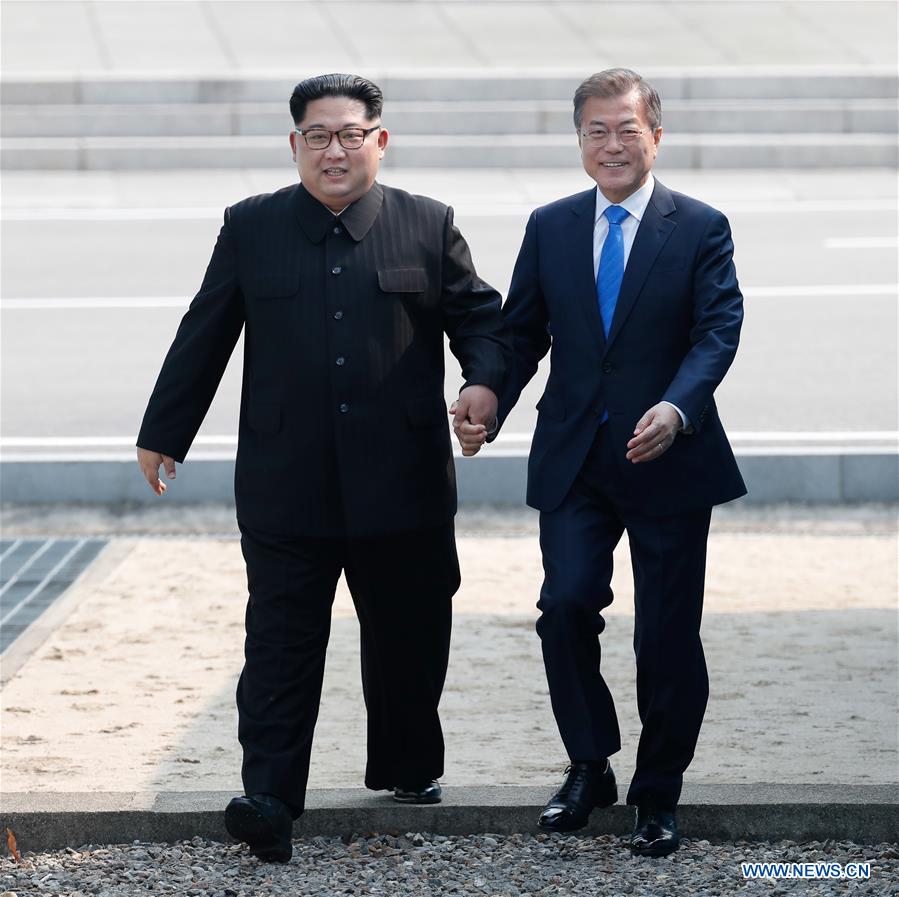The Kim-Moon summit
- By Sajjad Malik
 0 Comment(s)
0 Comment(s) Print
Print E-mail China.org.cn, September 18, 2018
E-mail China.org.cn, September 18, 2018

The leaders of North and South Korea are meeting enthusiastically for the third time since April this year to improve the relations and create an atmosphere of trust and goodwill that ultimately may bring lasting peace and stability to the troubled peninsula.
Moon Jae-in is paying a three-day visit to Pyongyang from Tuesday to hold detailed talks with Kim Jong-un, who has already created history by becoming the first leader of his country to hold summit level talks with the United States when he met Donald Trump in June.
The latest summit is part of the April 27 Panmunjom Declaration, when Kim and Moon decided to hold a meeting sometime in the fall in the northern capital. It is of paramount importance that they have kept this promise, despite many seen and unseen hurdles.
Kim has shown enormous maturity by agreeing to denuclearization for the sake of future peace and progress. He is keen to formally terminate the 1950-53 Korean War, which ended in an armistice so that, technically, the two Koreas are still at war.
The two sides have suffered the horrors of war and its aftermath. The families separated by the conflict have been living in isolation for decades, always hoping they would one day be permanently united with loved ones. Just think about what this means to the personal and social lives of the affected people.
Though, South Korea has made good by rapidly developing its economy and carving out a place in the community of nations, but this development is only a half-achieved success given that the other half of Korean peninsula has lagged behind.
The formal end of war and peaceful commercial exchanges can go a long way to help the North to realize its true potential.
Both Kim and Moon deserve appreciation for not blinking in the face of daunting odds and continuing to invest time and energy in building trust and amity between the two sides. Their personal relations and efforts can also pave way in easing tension between North Korea and the U.S.
Their summit is for both long- and short-term gains. Immediately, there is a roll-on effect through lowering tensions and keeping the communication lines open. The final goal is complete peace and a possibility of reunification.
Currently, the issue of denuclearization is a key sticking point, especially with President Donald Trump and his administration in Washington, who want tangible progress before offering any concession on lifting the sanctions imposed against Pyongyang.
Instead of just going for real politics, the stakeholders should adopt a practical approach and, instead of wasting time on unrealistic demands and failing in the process, they should give peace a chance – meaning a reciprocal and simultaneous approach on all issues.
The concept of reciprocity will create a win-win situation for Washington and Pyongyang. Demanding that the North should give up nuclear weapons without offering anything in response is stretching things a bit too far.
There is also pressure on Trump for showing flexibility on North Korea; however, he deserves credit for his out-of-the-box thinking. He made the first ever summit with North Korea possible and he can use his powers to move the process forward.
This means not setting the bar too high, and engaging in practical diplomacy. He should grab the moment as Kim has already shown willingness to be a partner on this rather perilous journey.
The Kim-Moon summit once again has created a window of opportunity and Trump should follow it up by rescheduling the visit of Secretary of State Mike Pompeo, scheduled toward the end of August but canceled at the eleventh hour due to lack of progress since the Kim-Trump meeting in Singapore.
The inter-Korean dialogue is the best option to reset the tone and tenor of the bilateral and regional security environment. There should also be a broader effort to set up a regional mechanism to regularly bring the top leaders together.
Dialogue is the only way for peace and stability in the world. The earliest we understand it and honestly follow it, the better it would be.
Sajjad Malik is a columnist with China.org.cn. For more information please visit:
http://m.91dzs.com/opinion/SajjadMalik.htm
Opinion articles reflect the views of their authors, not necessarily those of China.org.cn.





